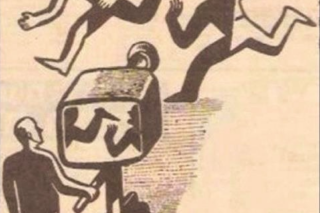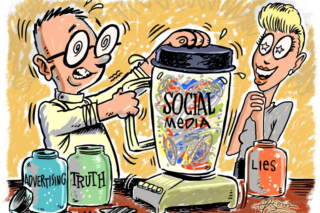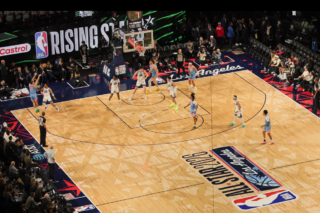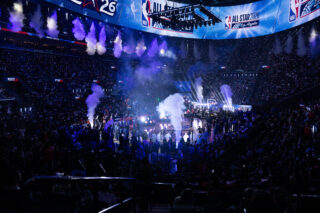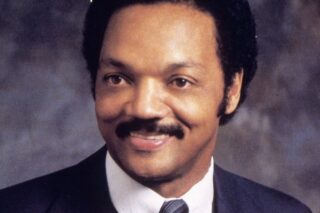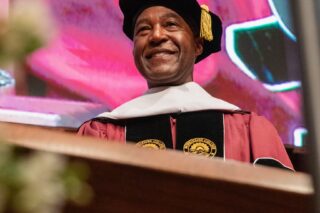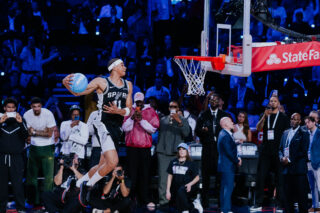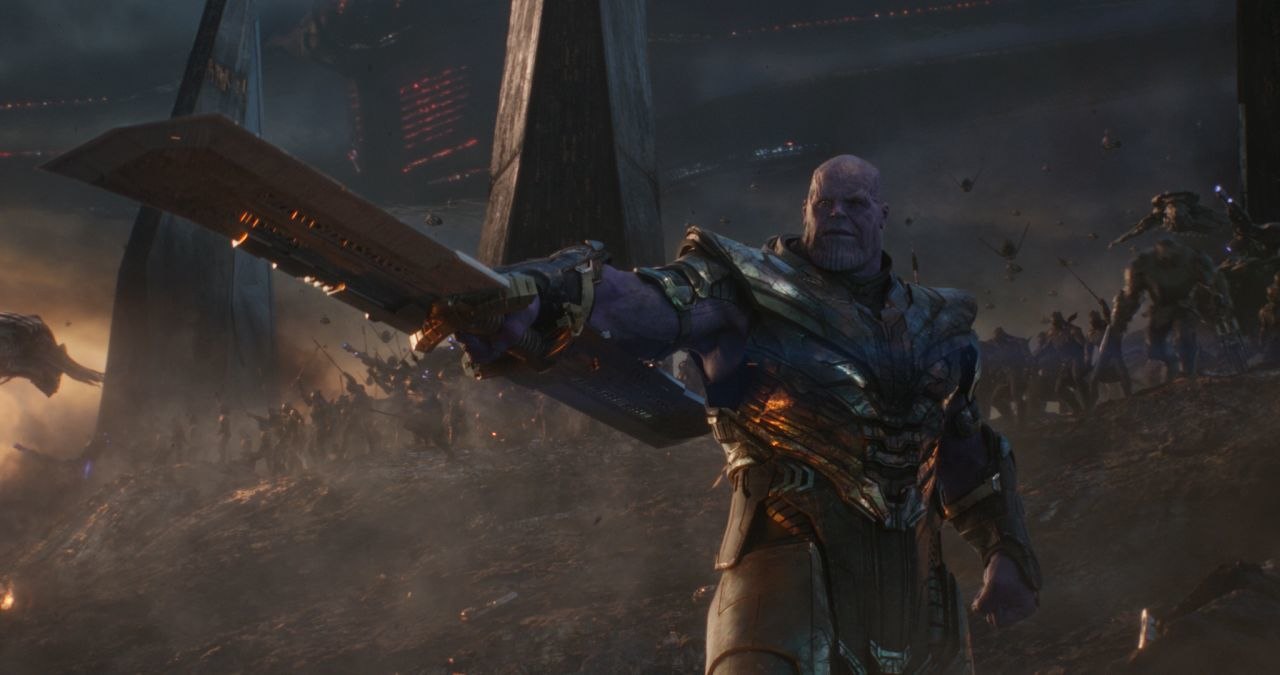Kennedy London, Associate Arts & Entertainment Editor
Any sensible person would not tell Pablo Picasso how to paint a painting or tell Cormac McCarthy how to write a novel. Someone who is a master of their craft should be allowed to exercise their skills to the best of their ability. Any sort of interruption or distraction can throw the artist off of their game and they may end up feeling like they cannot put their best foot forward.
For filmmakers, this is astronomically crucial. Telling Steven Spielberg or Akira Kurosawa how they should make their film is blasphemy because who is foolish enough to question someone who has decades of experience creating classics? The conversation becomes less about the success of the film and more about the integrity of it.
A few weeks ago, the director of the critically-acclaimed South Korean dark comedy Parasite, Bong Joon-ho, was asked on Variety’s “The Big Ticket” podcast would he direct a Marvel movie and his response was, “I don’t think Marvel would ever want a director like me…The film industry seems complicated, but I think it’s quite simple for directors. It’s just best to do what you’re good at. And so I don’t really think Marvel and I are suitable for each other.”
Working with certain big industry studios and franchises come with a certain level of artistic conformity. For Marvel, it does not seem to be about how the director wants to realize the vision, it about how Marvel wants to realize the vision. Jeopardizing your cinematic voice is a compromise most filmmakers are not willing to make.
When you have talented directors such as Scott Derrickson, Edgar Wright, and Patty Jenkins all leave due to “creative differences”, and those creative differences are due to those directors being asked to sacrifice their vision for the machine, it becomes clear what the relationship between filmmaker and studio boils down to.
In reality, a studio should understand that in order for the chef to create the best meal, you must let them be in charge of the kitchen. This is why you won’t see certain directors like Barry Jenkins or Damien Chazelle take on a franchise project if the project is not trusted fully in their hands. What is the point in hiring a director if they are going to be dictated in what they can do?
With Marvel, the success and the universal acclaim comes like clockwork because it is a well-oiled machine and “everybody” loves Iron-Man, Hulk, Spider-Man, Thor, and the such. But, consider when watching a Marvel Cinematic Universe film ask yourself, “ Do I hear or feel a particular voice talking to me or it is just Marvel singing us the lullaby that always puts us to sleep?
With many films, past and present, you can tell that there is a clear voice, distinct vision, and a particular drive behind the camera. Whether it is for entertainment or something with considerable depth, cinema clamours for more than just our admiration, but our humanity. Barring a few films, The MCU has not always felt really distinct.
Let’s take Ryan Coogler for example. Compare the boxing scenes, especially the climactic match, in 2015’s Creed to the hand-to-hand fight scenes in 2018’s Black Panther. While Creed’s boxing is brutal & visceral and takes you on a roller coaster ride of emotion, the fight scenes in Black Panther seem more tame and friendlier in comparison. There is a distinct level of edge that is missing and it becomes more glaring upon further viewings.
So, how is a director known for creating incredibly stressful and heartbreaking moments in his young career end up with this kind of result? Of course, the answer is, “Well, he’s directing a Marvel movie.” But, should the differences be THAT noticeable?
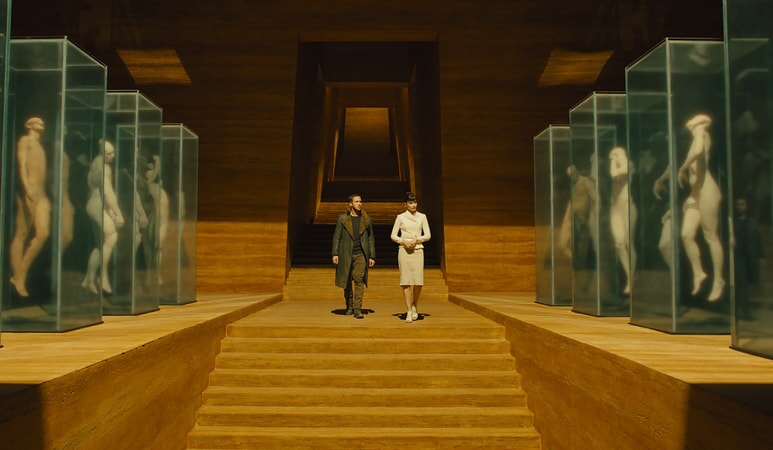
We have comic books films like Logan, The Dark Knight trilogy, and the polarizing Joker where, despite how reactions may vary, it is apparent that there is a distinct voice for those specific stories. There are examples of other franchise films that have this distinction including the recent Planet of the Apes trilogy, Blade Runner 2049, the Daniel Craig-James Bond films, Prometheus, and the aforementioned Creed.
The MCU is not generally known for taking risks or creating something distinguishable. The biggest risk they took was the ending of Infinity War, which took 20 films to do and they took it back in Endgame. The only reason why pointing these things out is controversial is that going against or bringing up a critique about Marvel, and more specifically Disney, is not advised because they are the titan of the entertainment industry.
This is why Martin Scorsese took so much heat for his Marvel comments in late 2019. It was not because Scorsese commented out of jealousy or resentment, it was because he felt how many others were feeling but never spoke because the question was “Who was going to be the first one to stand up to the biggest kid on the playground?” Try telling any authority figure how you really feel and see if it will be received well.
Coming from a person who is a fan of Marvel movies in general, sometimes we have to call a spade a spade. The only way Marvel pushes the industry is by grossing more money and being more successful than everybody else, however, if we speak to the artistry and movie magic, there are only a handful of MCU movies that actually check out those boxes.
Marvel sets the tempo, so why should they look to their contemporaries? Well, if they want to have the same respect or just be able to stay on top of the mountain for another ten years, mixing it up should be in their best interest. Let directors and filmmakers carve out their path under your umbrella and maybe they can get to the avenues that so many filmmakers have already created over the years. Taika Watiti got more admiration creating Jojo Rabbit than he ever would have gotten directing Thor: Ragnarok.
Nobody can take away the success and the reputation that Marvel has accumulated, but there will always be a window open for criticism in terms of filmmaking. Most MCU films are good, but very few will stand the test of time so long as the formula stays the way it has. In terms of boundaries and craftsmanship, Marvel is not leading the pact. It is up to them to change that.

